Top 10 Influential Women in Clinical Research
Introduction
As the International Day of Women and Girls in Science approaches on February 11, 2024, TFS HealthScience is celebrating the numerous women in clinical research who have helped shape the field. Historically, the significant contributions of women to the advancement of medical and clinical research discoveries have often been overlooked or understated. Therefore, in this article, we highlight the top ten influential women in clinical research, in no particular order, shedding light on their invaluable breakthroughs and perspectives which have enriched the medical and pharmaceutical industries.
#1 Marie Curie (1867–1934)
Marie Sklodowska-Curie is the first woman in Europe to have earned a Doctor of Science degree and a groundbreaking scientist whose world-renowned accomplishments to the field of radiology have left a profound legacy. She is not only the first woman in history to win a Nobel Prize but also the only person to have won the award in two different scientific fields. The first was in 1903 in Physics, shared with Pierre Curie and Henri Becquerel, for her studies on radioactive substances, and the second was in 1911 in Chemistry, for her work on the isolation of metallic radium.
However, it’s worth noting that Marie’s contribution in 1903 was initially overlooked, and it was only after Pierre insisted that they should be honored together, that she was acknowledged. Curie’s pioneering work on radioactivity laid the foundation for the development of X-rays, which revolutionized the field of diagnostic medicine. Furthermore, her research has led to the development of radiotherapy, a mainstay of curative oncological therapy that will be required by nearly 50% of all cancer patients, both in and out of clinical trials.
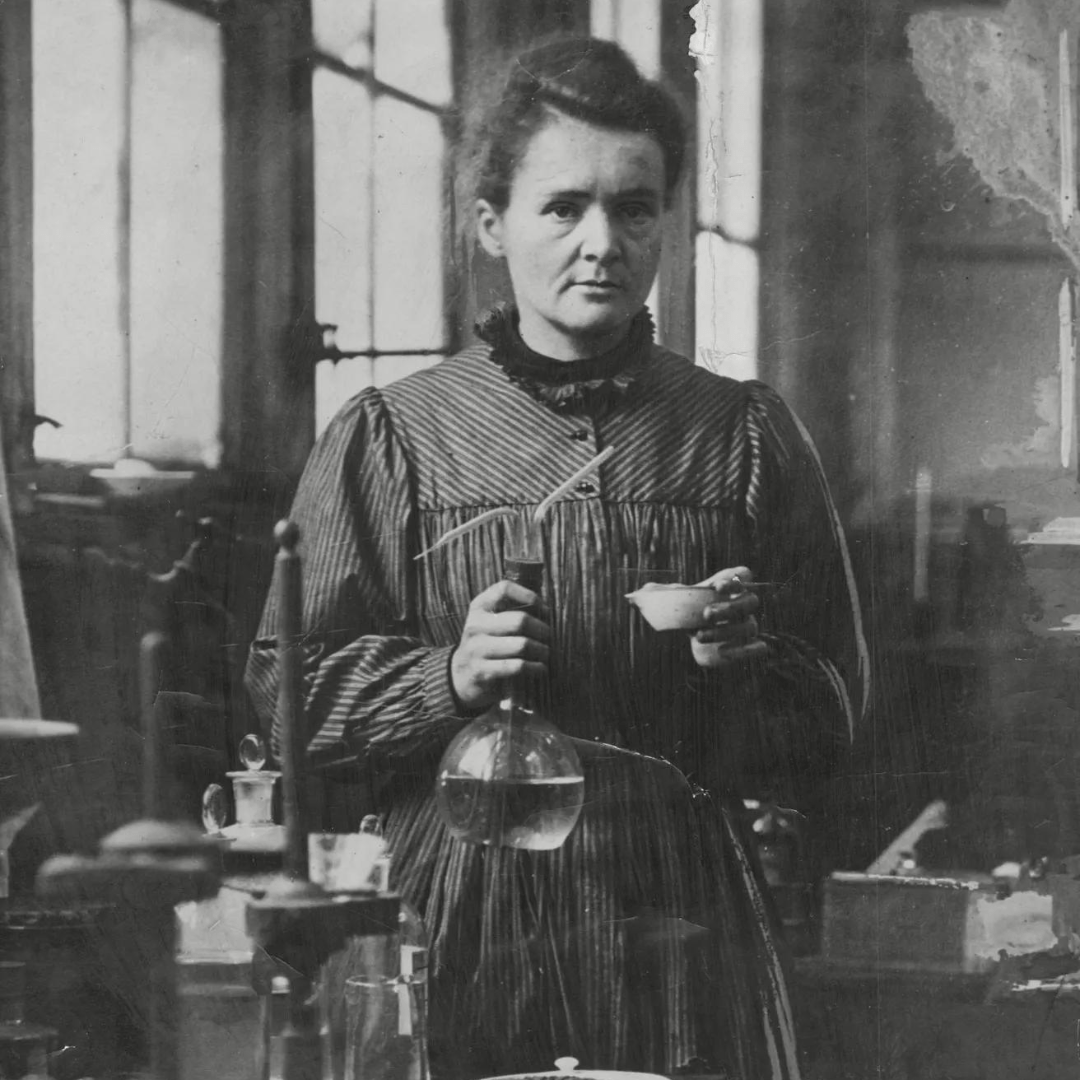
#2 Dr. Elizabeth Blackburn
Dr. Elizabeth Blackburn left an indelible mark on the field of molecular biology. After receiving her Ph.D. in molecular biology in 1975, Dr. Blackburn and Carol W. Greider, then a graduate student in her laboratory, went on to discover the enzyme telomerase in 1984. Their research revealed that telomerase plays a fundamental role in maintaining chromosomes as it can add DNA to telomeres, which shorten following cell division and are the primary determinants of cell lifespan.
The discovery of telomerase paved the way for an enhanced understanding of how cells age. Her research has profound implications for various diseases including cancer, degenerative diseases, and aging. Dr. Blackburn has received numerous prestigious awards, most notably the Nobel Prize for Physiology or Medicine in 2009, and has been elected a Foreign Associate of the National Academy of Sciences, highlighting the enormous impact she has had on the field of clinical research.

#3 Anne Marie Nagy, VP, Head of Internal Medicine & Neuroscience at TFS
Anne Marie Nagy is playing a pivotal role in transforming clinical research at TFS HealthScience CRO (Contract Research Organization). With her extensive knowledge and experience in the field of neuroscience, she is significantly contributing to the strategic planning, coordination, and implementation of projects in this area. Nagy has managed numerous large, complex, multi-regional, full-service clinical trials, including late-stage and post-marketing studies and her strategic planning skills have been instrumental in ensuring the effective and efficient execution of these trials. She brings to the table a wealth of regulatory, medical, scientific, and operational knowledge, particularly within the realm of neuroscience at TFS.
Beyond her technical contributions, Nagy’s role as a leader in clinical research cannot be overlooked. She has held leadership positions in several leading contract research organizations, including TFS, IQVIA, Premier Research, and PPD. Her leadership extends to strategic planning for clinical research in neurosciences and rare diseases such as Alzheimer’s, Parkinson’s, schizophrenia, epilepsy, and more. As the current Vice President, Head of Internal Medicine and Neuroscience at TFS, Nagy manages a global team of experts, highlighting her ability to lead and inspire.
#4 Barbara McClintock (1902–1992)
Barbara McClintock is a renowned Nobel laureate, celebrated for her discovery of transposons, otherwise known as “jumping genes.” Her revolutionary idea of “jumping genes” challenged existing notions about genetic stability, as she demonstrated that genes could change positions on the chromosome. This discovery resulted in McClintock being awarded the Nobel Prize in Physiology or Medicine in 1983, and she became the first woman to receive an unshared Nobel Prize in that category.
The novel concept of transposons contributed to advancing our understanding of genetics and McClintock’s work provided a new perspective through which to understand genetic mutations and diseases. Her research has informed our understanding of genetic diversity, evolution, and even the functioning of our brains. It has also influenced the development of certain genetic engineering techniques, and her work continues to be a reference point for modern genetic research, supporting clinical research in personalized medicine.
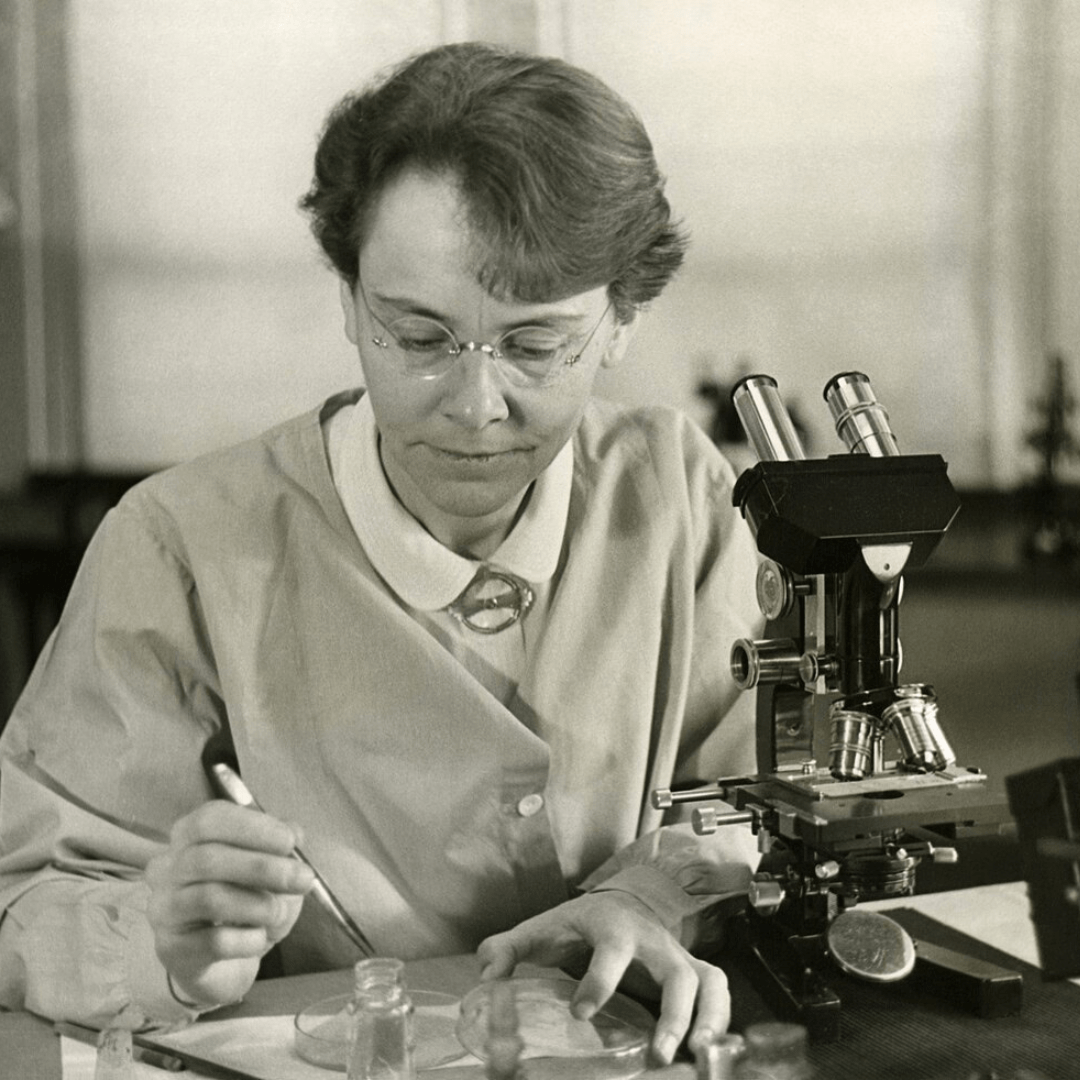
#5 Ina Zschocke, VP, Head of Dermatology, Immunology, & Inflammatory Diseases at TFS
Dr. Ina Zschocke‘s significant contributions to dermatology are evident in her various leadership roles. She co-founded SCIderm, a leading dermatology CRO, and helped in its acquisition by TFS in 2016. She has since served as the Vice President, Head of Dermatology, Immunology, and Inflammatory Diseases at TFS, where she has been instrumental in delivering full-service clinical development programs and services.
Dr. Zschocke’s influence extends to corporate strategy, where she has significantly impacted the growth and development of her organization. In her role as at TFS HealthScience, she leverages her expertise to design efficient solutions for clients and has made substantial impacts through her leadership and mentoring. As a VP at TFS, she oversees a global team of experts, fostering a collaborative and supportive culture that encourages innovation and excellence.
#6 Dr. Jane C. Wright (1919–2013)
Dr. Jane Cooke Wright was a pioneer in the field of clinical oncology. After graduating from the New York Medical College with honors, she joined the Cancer Research Foundation at Harlem Hospital in 1949 to pursue her groundbreaking research on potential chemotherapeutic agents. Dr. Wright played a significant role in transforming chemotherapy from a hypothetical, experimental drug, to an established and effective pillar of cancer medicine.
Notably, Dr. Wright’s work led to the development of combination chemotherapy, which involves administering multiple chemotherapy drugs in numerous doses and sequences. This concept was crucial for improving survival rates of many cancers, including childhood leukemia. Furthermore, she was a pioneer in utilizing patient tumor biopsies for drug testing, which helped select drugs with greater efficacy against particular tumors. This paved the way for what we know now as precision medicine, an approach that continues to revolutionize the idea of personalized medicine in cancer treatment to this day.
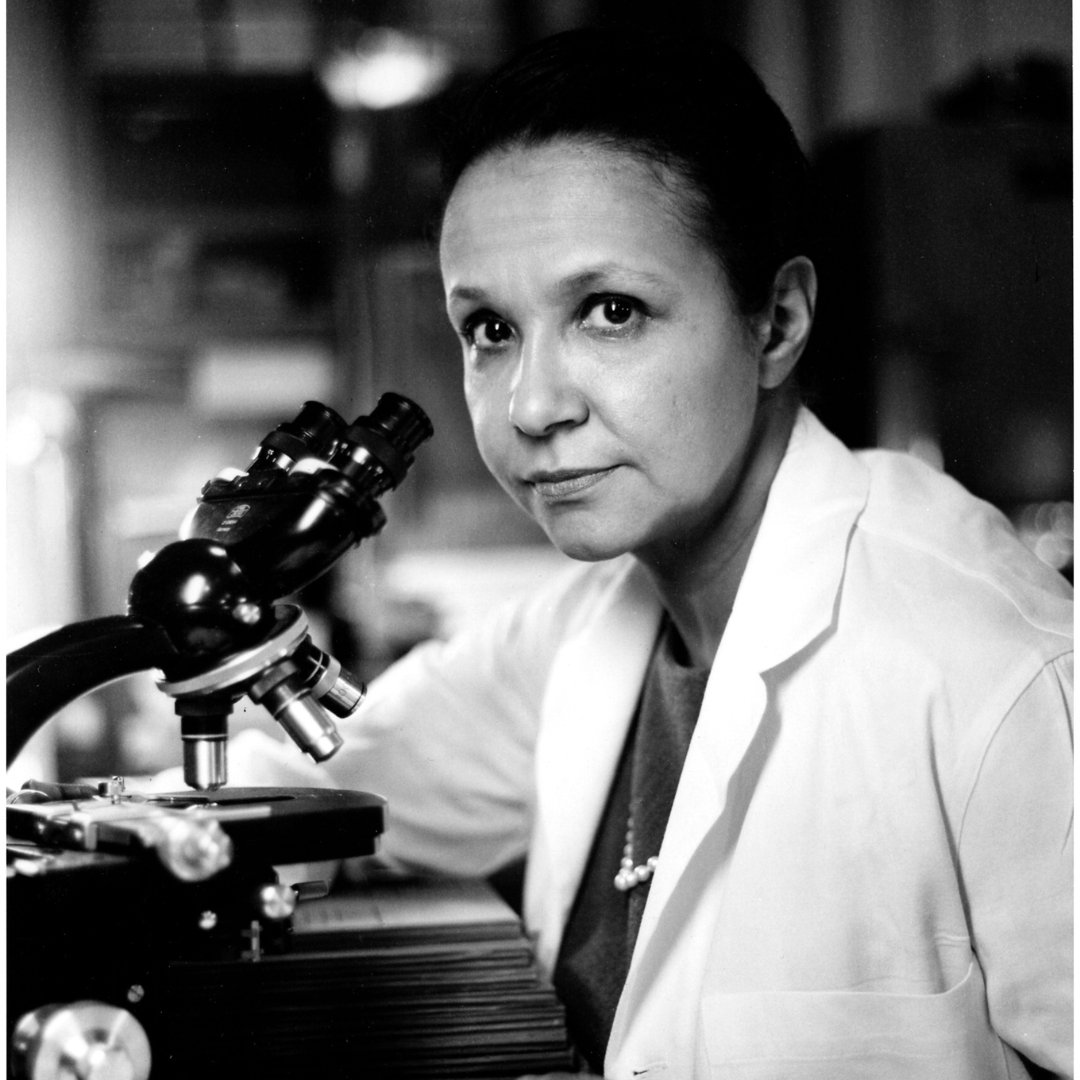
#7 Dr. Rita Levi-Montalcini (1909–2012)
Dr. Rita Levi-Montalcini is remembered for her remarkable resilience, determination, and passion for scientific discovery. Raised by a father who was opposed to women’s advanced education, she put in considerable effort to be admitted into medical school at the University of Turin in 1936, graduating with the highest distinction in medicine and surgery. Undeterred by Mussolini’s 1938 Race Laws abruptly halting her career as a non-Aryan scientist, Dr. Levi-Montalcini built a laboratory in her bedroom and used makeshift tools to study chick embryos’ motor neurons. She remained dedicated to her research through the end of World War II.
In 1946, Dr. Levi-Montalcini identified a substance now termed nerve growth factor (NGF). Her discovery of NGF revolutionized neurobiology and opened up new possibilities for studying neurological disorders, ultimately paving the way for how we develop treatments today for diseases such as Alzheimer’s and cancer. Beyond these contributions, Dr. Levi-Montalcini also remained passionate about ensuring that future generations of scientists have access to funds, equipment, and support for their research.
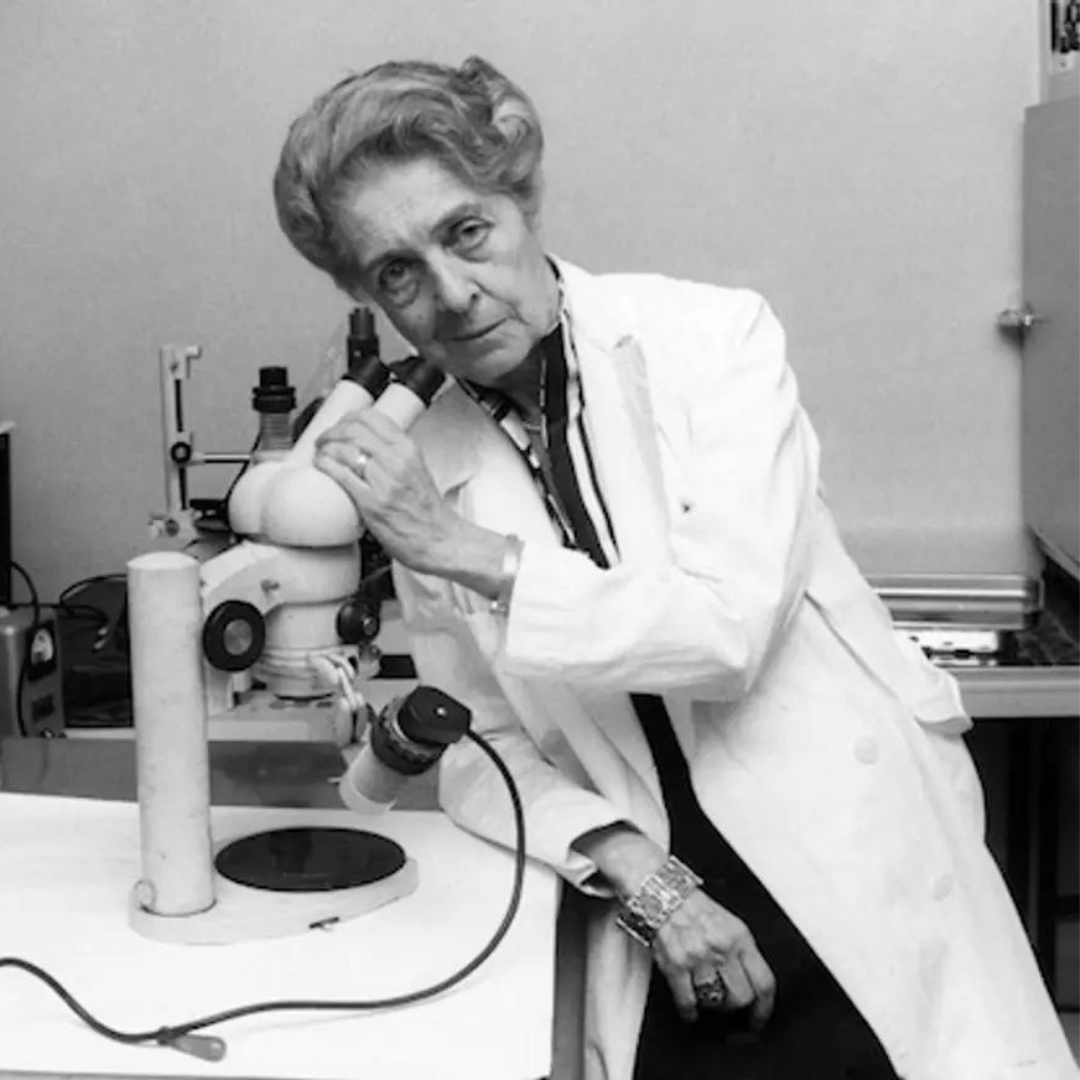
#8 Gertrude Belle Elion (1918–1999)
Gertrude Elion overcame considerable gender discrimination throughout her career in academia and went on to be celebrated for her significant contributions in pharmacology, revolutionizing drug development. In 1944, she joined the Burroughs Wellcome Laboratories, now known as GlaxoSmithKline, as a research chemist. Here, she and Dr. George Hitchings developed a new approach to drug development that allowed them to design drugs that were selectively effective against specific diseases while leaving normal cells unharmed.
In recognition of her pioneering work, Elion was awarded the Nobel Prize in Physiology or Medicine in 1988, shared with Dr. Hitchings and Sir James W. Black. Because of her research, countless lifesaving drugs are available today, particularly for leukemia, gout, malaria, and herpes. After her official retirement in 1983, she continued to contribute to the field, overseeing the development of AZT, the first drug used in the treatment of AIDS. In 1991 she was awarded a National Medal of Science and was inducted into the National Women’s Hall of Fame.
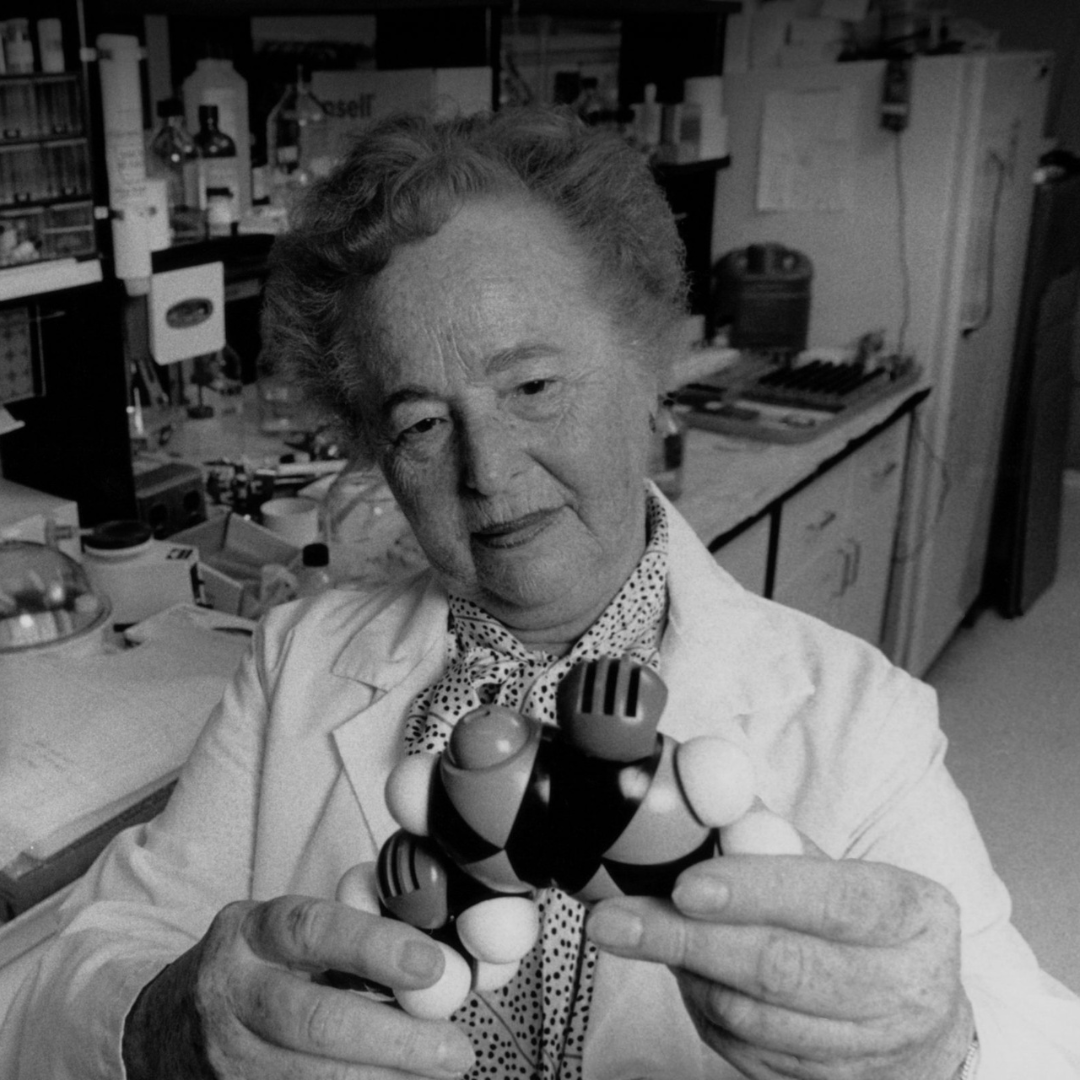
#9 Françoise Barré-Sinoussi
Dr. Françoise Barré-Sinoussi is a renowned French virologist, a Nobel laureate, and a co-discoverer of the Human Immunodeficiency Virus (HIV). Her research has been integral to improving the understanding of this virus and how it causes acquired immunodeficiency syndrome (AIDS). This discovery led to her being named co-recipient of the 2008 Nobel Prize for Physiology or Medicine, along with Luc Montagnier and Harald zur Hausen.
As a result of Dr. Barré-Sinoussi’s unwavering commitment and passion for the fight against AIDS, several new antiviral drugs and diagnostic methods have been developed to treat HIV/AIDS. In 1996, a 20-year-old who tested HIV-positive could expect to live no longer than 39 years; however, by 2011, the total life expectancy increased to 70 years. Dr. Barré-Sinoussi’s continued dedication to multidisciplinary and translational science resulted in the 2010 International AIDS Society “Toward an HIV Cure” initiative, which is helping millions of individuals who are HIV-positive live long, healthy lives.

#10 Henrietta Lacks
In celebration of Black History Month, TFS wishes to honor the incredible legacy of Henrietta Lacks and the transformative impact she has had on clinical research, even 73 years since her death in 1951. Henrietta, a 30-year-old African American woman, visited Johns Hopkins University in Baltimore, Maryland for treatment following considerable cervical pain and bleeding. Unbeknownst to her, a biopsy of her tumour cells was taken by the doctor for the purpose of research without her consent. These cells have since become one of the most vital tools in modern medicine, contributing to numerous scientific breakthroughs. Notably, since their discovery, HeLa cells have helped prevent 4.5 billion global infections and 10.3 million global deaths.
While the contributions of HeLa cells to clinical research are indisputable, the manner in which they were collected from her person has sparked an ongoing debate about informed consent and the commercial use of biological materials. Henrietta Lacks was never asked for permission to use her cells and neither she nor her family were ever compensated. The ethical issues raised by this case have had a profound impact on medical ethics and regulation, leading to changes in laws regarding informed consent and the use of human tissues in research. It has also initiated calls for patients to be able to control what happens to their biological materials. In 2013, the National Institutes of Health (NIH) announced a policy requiring its funded researchers to use HeLa cells only with the permission of the Lacks family, marking a significant step in recognizing the rights of individuals in research.
The story of Henrietta is a testament to the lasting impact that one individual can have on the advancement of medical science, whether they intended to or not. More importantly, she and her HeLa cells are a crucial reminder of the ethical responsibilities and respect for patient rights that clinical researchers must hold themselves to. Visit our article here to learn about the three lessons Henrietta Lacks taught us about clinical research in the Black community.
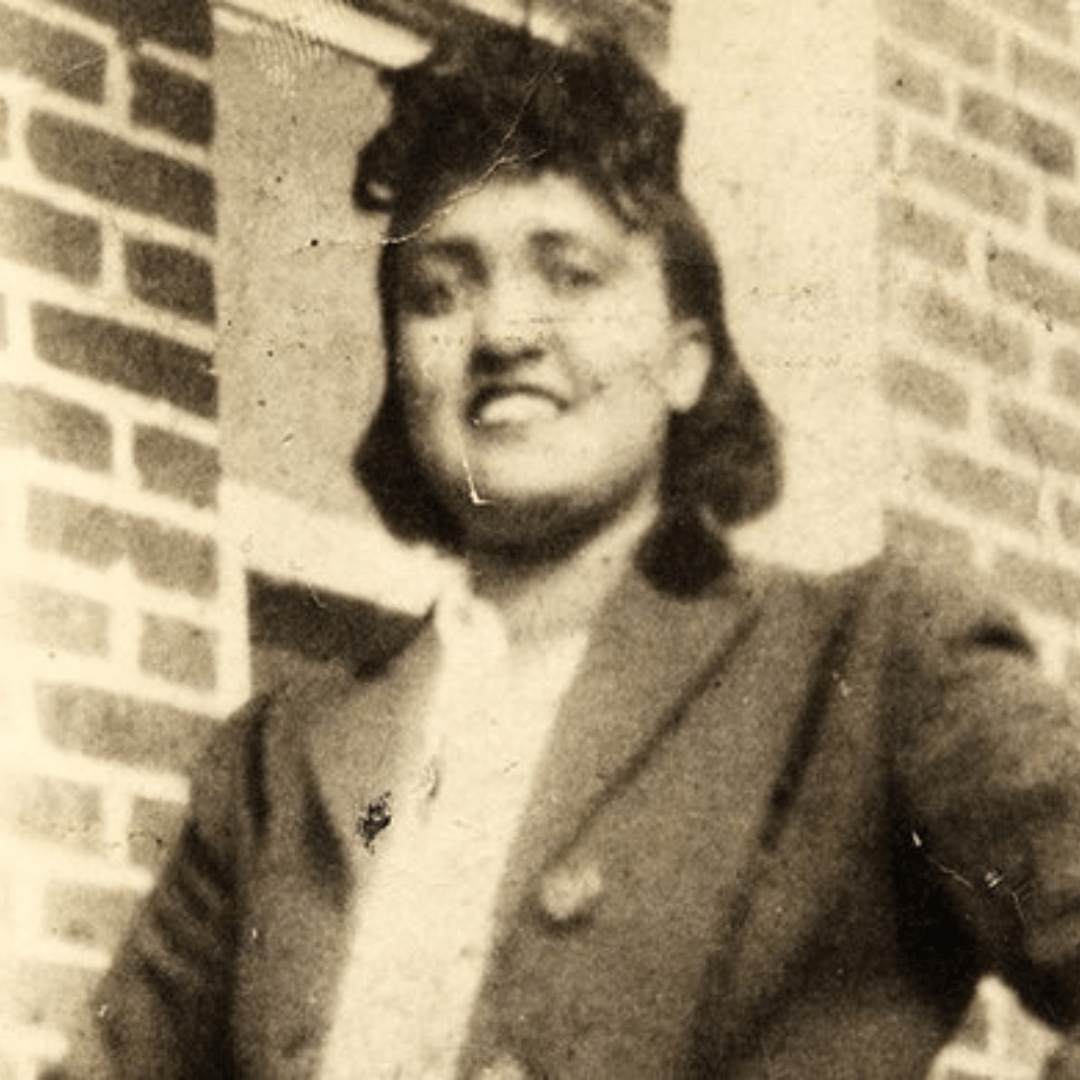
Conclusion
The contributions of these pioneering women in clinical research have revolutionized many areas in medicine and have paved the way for future advancements for patients with a variety of different diseases. Their work serves as an inspiration to all, particularly women, in the scientific field that, despite the challenges and odds, significant discoveries come from persistence, determination, and dedication.
Read more here about other women in clinical research history who have paved the way for science and medicine today. You can also visit this article to learn about five inspiring women in STEM who are currently making medicine happen.
About TFS HealthScience CRO
At TFS HealthScience, we recognize the incredible contributions made by women in sciences over the years and their significant impact on the medical field today. We are a global CRO made up of numerous female leaders who continue to support biotechnology and pharmaceutical companies throughout their entire clinical development journey. In partnership with customers, TFS builds solution-driven teams working for a healthier future. Visit our website to learn more about the solutions TFS can offer for your next clinical trial or connect with a TFS representative today!
Learn more about our related services and resources:
Contact Us:
Contact us today to learn more.


